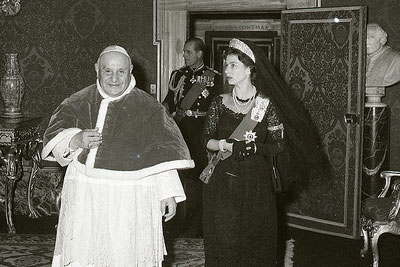6 February saw the start of the celebrations of The Queen’s Diamond Jubilee, which will culminate this summer in a spectacular pageant on the River Thames in June. We can expect parties and fireworks, ceremonial and reflection on an extraordinary life devoted to public service. The Olympic and Paralympic Games in July and August will serve further to place Her Majesty and the United Kingdom in the spotlight. As Head of the Anglican Church, Head of the 54 member state Commonwealth of Nations, and Head of State of 15 countries across the globe, the celebrations in 2012 will be truly international.
Inevitably, though, the celebrations began with a moment of solemn commemoration. The time–honoured formula is: “The King is Dead, Long Live The King” , and Her Majesty must mark each anniversary of her own accession on a day that can only bring painful memories, that of the death of her father, King George VI.
I had the opportunity to reflect on the significance of 6 February in a brief article I wrote for the Vatican newspaper L’Osservatore Romano, and in a separate interview for Vatican Radio. In the article, I cite Winston Churchill, writing to a friend a few days after the King’s death. He wrote: “We have sustained a terrible loss in the death of King George VI, who was a devoted and tireless servant of this country, and these are sad days indeed. But I am sure that in his daughter we have one who is in every way able to bear the heavy burden she must now carry.” History has borne this prophecy out.

